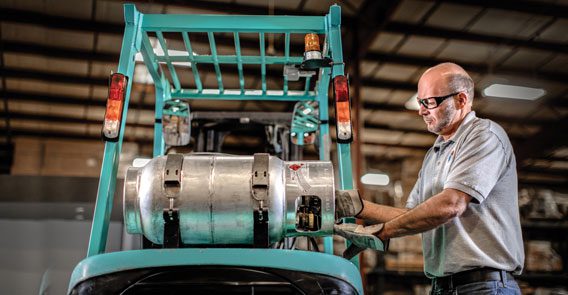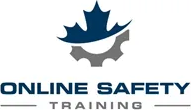Propane Handling and Exchange Training

Safeguarding Workplaces: Propane Handling and Exchange Training for Canadian Workers
In Canada, propane serves as a versatile and widely utilized fuel source across various industries, from construction and agriculture to hospitality and transportation. Its efficient combustion properties make it an attractive energy source for heating, cooking, power generation, and more. However, with the benefits of propane also come inherent risks, particularly concerning its safe handling, storage, and exchange. To mitigate these risks and ensure the well-being of Canadian workers, comprehensive training in propane handling and exchanging is paramount. In this article, we delve into the importance of such training programs and their critical role in safeguarding workplaces across the country.
- Safety First Mentality: The cornerstone of propane handling and exchanging training is instilling a safety-first mentality among workers. Propane is a highly flammable gas that can pose significant hazards if mishandled or improperly stored. Training programs emphasize the importance of adhering to strict safety protocols, including proper handling procedures, leak detection, emergency response protocols, and the use of personal protective equipment (PPE). By prioritizing safety at all times, workers can mitigate the risk of accidents, injuries, and potential disasters in the workplace.
- Compliance with Regulations: In Canada, the safe handling and transportation of propane are regulated by various federal and provincial agencies, including Transport Canada and provincial occupational health and safety authorities. Employers have a legal obligation to ensure that workers receive adequate training in propane handling and exchanging to comply with these regulations. Training programs provide workers with the knowledge and skills necessary to meet regulatory requirements, reducing the risk of non-compliance penalties and legal liabilities for employers.
- Risk Mitigation: Proper training in propane handling and exchanging is essential for identifying and mitigating potential risks in the workplace. Workers learn to recognize common hazards associated with propane, such as leaks, overpressurization, and improper storage, and are equipped with the tools and techniques to address these risks effectively. By proactively managing risks through preventive measures and hazard controls, workers can minimize the likelihood of accidents and injuries, creating a safer work environment for themselves and their colleagues.
- Emergency Preparedness: Despite preventive measures, emergencies related to propane handling can still occur in the workplace. Training programs include instruction on emergency response procedures, such as evacuation protocols, fire suppression techniques, and first aid measures for propane-related injuries. Workers are trained to remain calm and composed in high-stress situations, enabling them to take swift and decisive action to mitigate the impact of emergencies and protect lives and property.
- Equipment Familiarization: Propane handling and exchange training also encompasses familiarization with the various equipment and machinery used in propane-related activities. This includes propane cylinders, tanks, regulators, valves, and dispensing equipment. Workers learn how to inspect, maintain, and operate propane equipment safely, ensuring proper functioning and minimizing the risk of equipment malfunctions or failures that could lead to accidents or injuries.
- Environmental Stewardship: Propane is a clean-burning fuel that produces lower emissions compared to many other fossil fuels. However, improper handling or disposal of propane can still have adverse environmental consequences, such as air and water pollution. Training programs emphasize the importance of environmental stewardship and responsible propane management practices. Workers are educated on proper storage, handling, and disposal methods to minimize environmental impact and ensure compliance with environmental regulations.
- Continuous Improvement: The field of propane handling is constantly evolving, with new technologies, regulations, and best practices emerging over time. Training programs provide workers with opportunities for continuous learning and skill development to stay abreast of industry advancements. Whether through refresher courses, updates on regulatory changes, or access to online resources and professional development opportunities, workers can continuously enhance their knowledge and proficiency in propane handling and exchanging.
Propane handling and exchange training are indispensable for Canadian workers across various industries where propane is utilized. By prioritizing safety, complying with regulations, mitigating risks, preparing for emergencies, familiarizing with equipment, promoting environmental stewardship, and embracing continuous improvement, workers can ensure the safe and responsible handling of propane in the workplace. Ultimately, investing in comprehensive training programs not only protects workers and workplaces but also fosters a culture of safety, professionalism, and environmental responsibility in the Canadian workforce.
Categories
- Aerial Lift
- ATV Training
- Bear Awareness
- Chainsaw Training
- Confined Space
- Defensive Driving
- Forklift Training
- Lockout Tagout
- Online Safety Training
- Overhead Crane
- Pipeline Construction Safety Training
- Propane Handling
- Safety Training Benefits
- Scissor Lift
- Skid Steer Training
- Space Awareness
- TDG
- Telehandler Forklift
- Traffic Control
- Train the Trainer course
- Training Course
- Uncategorized
- WHMIS
- Workplace Harassment and Violence Preventiont
